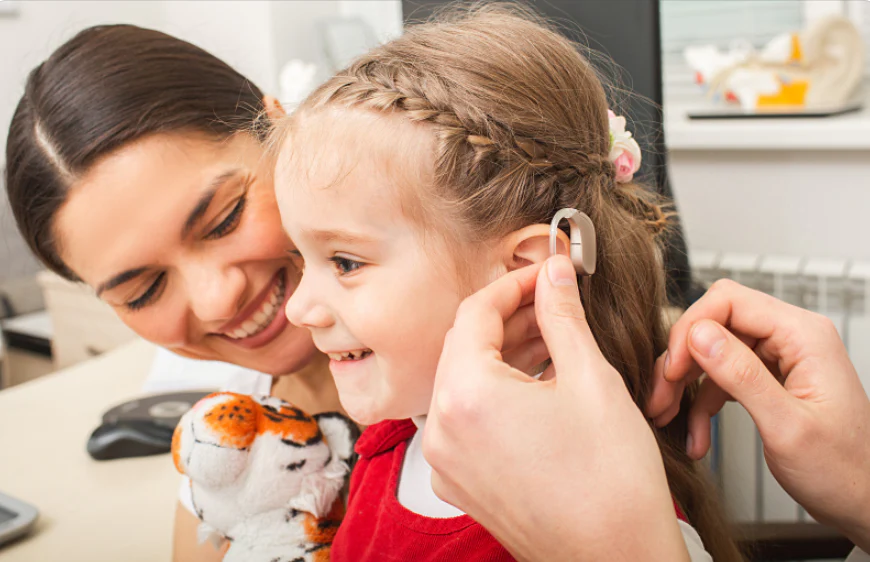Hearing Impairment Among Kids
Hearing plays a vital role in a child's speech, language, social, and emotional development. Early identification and intervention are key to supporting children with hearing challenges.

What is Hearing Impairment?
Hearing impairment refers to partial or total loss of hearing in one or both ears. It can be present at birth (congenital) or develop later in childhood (acquired).
🔍 Signs & Symptoms (Sx)Early signs of hearing issues can sometimes be subtle. Here’s what to look out for:
In Babies (0–12 months):
- No reaction to loud sounds
- Doesn't turn toward sounds or voices by 6 months
- Delayed babbling or cooing
- Doesn't respond to their name
In Toddlers & Children:
- Delayed or unclear speech
- Often says "huh?" or asks for repetition
- Watches others for cues (lip-reading)
- Turns up volume very high
- Struggles in group conversations or noisy places
- Appears inattentive or easily frustrated
📈 Possible Causes (Fx – Factors)Hearing impairment in children may be due to various factors:
- Genetic conditions (e.g., GJB2 mutation)
- Infections during pregnancy (e.g., rubella, cytomegalovirus)
- Premature birth or low birth weight
- Recurrent ear infections
- Ototoxic medications (certain antibiotics)
- Injury or head trauma
- Syndromes (e.g., Down syndrome, Usher syndrome)
🩺 Diagnosis & Tests (Ix)If hearing loss is suspected, these assessments help confirm and understand the condition:
- Newborn hearing screening (OAE, ABR)
- Audiometry for older children (tests response to sounds)
- Tympanometry to check middle ear function
- Imaging (CT or MRI if structural issues are suspected)
- Genetic testing (for congenital or unexplained cases)
- Lab tests (if infections or syndromes are involved)
💡 Treatment & Management (Tx)Treatment depends on the type and severity of hearing loss. Options may include:
- Hearing aids – amplify sound for children with mild to moderate loss
- Cochlear implants – for severe or profound hearing loss
- Speech and language therapy – supports communication skills
- Sign language – an alternative or supplement to verbal language
- Educational support – special accommodations in school
- Surgical treatments – e.g., for fluid in the ear or structural repair
👪 How Parents and Caregivers Can Help
- Pay close attention to your child’s speech and responses to sounds
- Attend regular hearing screenings and checkups
- Provide a language-rich environment — talk, read, and sing often
- Use visual cues and gestures to support understanding
- Seek early intervention — the sooner support begins, the better the outcomes
